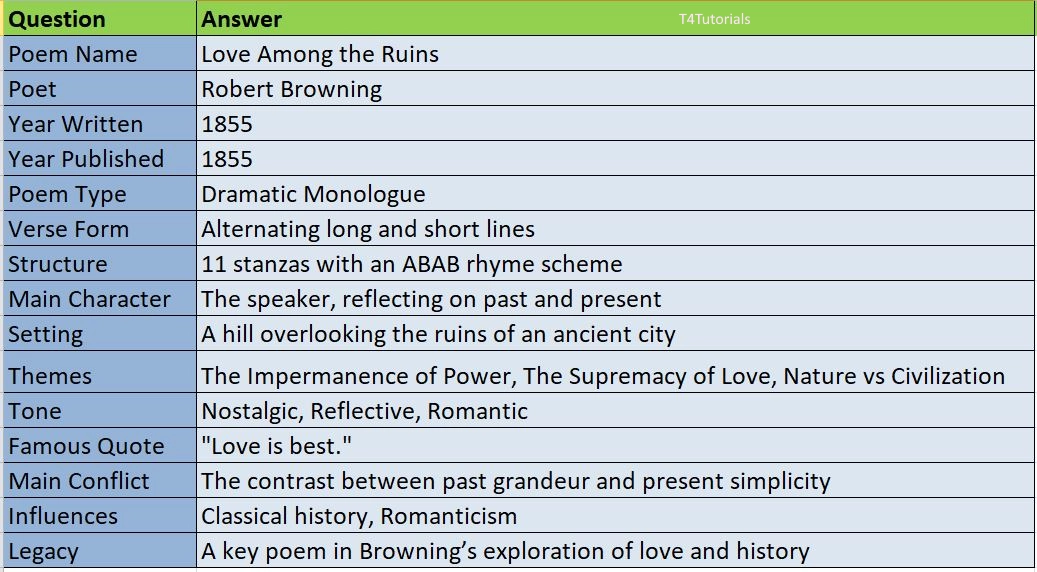Summary:
“Love Among the Ruins” is a dramatic monologue by Robert Browning, first published in 1855 in Men and Women. The poem contrasts the grandeur of a fallen ancient civilization with the enduring power of love. The speaker stands on a hill overlooking the ruins of a once-mighty city, reflecting on its past splendor and military conquests. However, he ultimately finds more value in the quiet presence of his beloved, emphasizing that love outlasts material achievements. The poem explores themes of the impermanence of power, the insignificance of earthly glory, and the supremacy of love over historical grandeur.
10
Score: 0
Attempted: 0/10
Subscribe
| Question | Answer |
| Poem Name | Love Among the Ruins |
| Poet | Robert Browning |
| Year Written | 1855 |
| Year Published | 1855 |
| Poem Type | Dramatic Monologue |
| Verse Form | Alternating long and short lines |
| Structure | 11 stanzas with an ABAB rhyme scheme |
| Main Character | The speaker, reflecting on past and present |
| Setting | A hill overlooking the ruins of an ancient city |
| Themes | The Impermanence of Power, The Supremacy of Love, Nature vs Civilization |
| Tone | Nostalgic, Reflective, Romantic |
| Famous Quote | “Love is best.” |
| Main Conflict | The contrast between past grandeur and present simplicity |
| Influences | Classical history, Romanticism |
| Legacy | A key poem in Browning’s exploration of love and history |